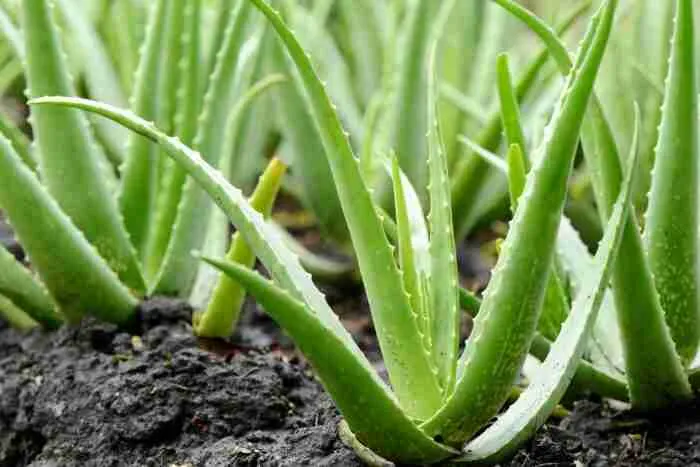Top 10 Medicinal Plants and Their Benefits
These medicinal plants have been a part of our lives since the beginning of time and have been used for a variety of medicinal purposes since ancient times.
Aloe vera

Aloe vera is referred to as the “King of medicinal plants.” It can survive in extremely dry conditions because its fleshy leaves store water. As a result, growing aloe vera in your garden will not necessitate any special attention. It can, however, treat a wide range of health issues. Here are some of the benefits of using aloe vera:
- Relieves constipation
- Helps with acne and digestive distress
- Builds the body’s immunity
Basil

A Basil plant requires only a relatively warm temperature, well-drained soil, regular watering, pruning, and fertilizing once a month. In exchange, it boosts immunity, improves digestion, treats inflammatory diseases, fights free radicals, deep cleanses the skin, lowers diabetes, lowers depression, and detoxifies the body. Basil is consumed as a garnish to various dishes, in soups, or in salads.
Mint

This fragrant medicinal plant has a wide range of applications. Mint can do everything from improve your mood to treat indigestion. Growing this plant requires a lot of water. As a result, you must sow its seeds and continue to water it. The best thing about mint is that it repels pests and insects, so your home will be pest-free.
Here are some benefits of consuming mint
- Keeps the digestive system running.
- Boosts immunity
- Improves mood
- Expels cough from the body.
- It repels mosquitoes.
Fenugreek

Fenugreek is a wonder among medicinal plants due to its properties. It is an evergreen plant whose leaves and seeds are both edible. Here are benefits of consuming fenugreek:
- Reduces cholesterol levels
- Reduces hair loss
- Enhances appetite
- Enhances your excretory system
- Lowers blood pressure by purifying the blood
- Helpful for joint pain and diabetes
Coriander

Coriander is a common kitchen ingredient. Its leaves, seeds, and seed powder are all beneficial to your health. It gives your food a distinct flavor and has a wide range of medicinal properties. Benefits of consuming coriander:
- It keeps the food from spoiling.
- It contains a lot of antioxidants.
- Improves digestion
- It contributes to effective menstrual cycles.
- It is used for acne treatment
Ginger

You name the issue, and ginger is the solution. All you have to do is plant the ginger root in your garden and it will grow in a few weeks. It is an important ingredient in food preparation because of its distinct flavor and, of course, its health benefits. Here are some of the ways ginger can help your overall health:
- Relieves indigestion
- Helps with headaches
- Helps control high blood pressure
- Treats the common cold, cough, flu, and asthma.
- Relieves menstrual cramps and pains.
Bay Leaf

Bay trees grow well in well-drained soil and with a generous supply of compost. Bay leaves are commonly used in a variety of dishes, from vegetarian to non-vegetarian. Some people use this leaf to treat cancer, gas, dandruff, joint pain, and boils. Some people prefer to use it in tea, and bay leaf boiled in water is a wonderful cough syrup. It is recommended to crumble the bay leaves in various dishes and eat them. It contains a variety of micronutrients in addition to Vitamins A, B6, C, iron, manganese, and calcium.
Lavender

Full sun and well-drained soil are essential for a healthy lavender plant. This herb is native to North Africa and the Mediterranean mountains. It is widely popular for the essential oil that is derived from the distillation of the flower spikes of certain lavender species. This oil has both cosmetic and medicinal uses. Lavender oil has antiseptic and anti-inflammatory properties, which aid in the healing of burns and bug bites. Lavender oil can also help with stress, anxiety, depression, and insomnia. Lavender tea can also help with digestive issues.
Curry Leaves

Curry leaf is used in a variety of side dishes and main courses. It has been in use for a long time. It aids in weight loss, treats dysentery and constipation, is beneficial to diabetics, heals wounds and cuts, improves eyesight, relieves nausea, and even improves memory.


